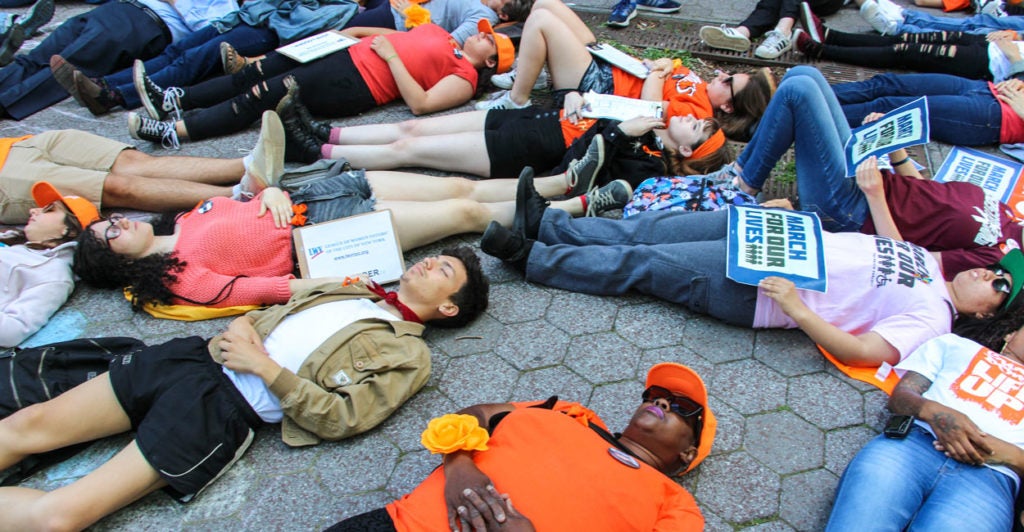In a discussion that gun rights activist John Lott Jr. had with an ABC News producer for a 2014 documentary special about the risks of having firearms in the home, the producer cited a gun ownership statistic that Lott knew to be wrong.
The producer told him that gun ownership had been falling in the United States, but ABC News’ own survey, conducted with The Washington Post, showed that gun ownership actually had held steady.
“Your own survey doesn’t show [that gun ownership is dropping],” he said he told the producer of the program, “Young Guns: A Diane Sawyer Special.”
At first, she didn’t believe him. Only after he forwarded a link to ABC News’ own survey, as well as to others that also showed the rate of gun ownership was constant, did she believe him.
“So what do you think ABC News uses as their survey? Does it use its own survey?” Lott asked his audience of 15- to 18-year olds Wednesday at the High School Leadership Summit, an educational conference for young conservatives sponsored by the nonprofit free-market activist group Turning Point USA.
“No,” he said, answering his own questions. “It uses this other survey [from another organization] that shows it dropped. And if you look at other media outlets, they keep on using this survey, because it gives them the result they want.
“They want to show that gun ownership is falling because they want to make gun owners feel isolated, that they are different, that they are out of step with other people to shame them for owning guns,“ said Lott, the author of four books on guns, including 2016’s “The War on Guns: Arming Yourself Against Gun Control Lies.”
The media have been framing gun ownership to fit the narrative about why the U.S. needs gun control—even if the narrative is incorrect, Lott told his audience at George Washington University’s Lisner Auditorium.
Lott also cited another false statistic that has been repeated often, including by former President Barack Obama.
“There is a report that came out that President Obama would often cite—the claim that, over the 47 years between 1966 and 2012, 31 percent of the mass public shooters were in the United States,” he said, noting that he had studied 15 years of the data Obama cited.
Lott found that, although the U.S. made up 4.6 percent of the total world population, over the last 15 years of the data, less than 1 percent of the mass shooters and just 2.2 percent of the killings from mass shooters in the world came from the United States.
“[I found] that we have shares of world mass public shooters, or mass public shootings, or murders from mass public shootings, that are well below our share of the world population,” he said.
However, the media don’t report that, said Lott, author of “More Guns, Less Crime” and “The Bias Against Guns.” That omission helps to perpetuate the false narrative.
“Europe gets more news coverage on mass shootings in the United States than they get on Europe’s [mass shootings and other mass shootings worldwide],” he said. “This has a big impact on [the gun control] debate because attacks in other countries are not reported.”
The U.S. is said to be among the top 14 countries in the world for gun violence, but that figure is also skewed, he said.
More than 45 percent of countries do not report homicides, he said, and many of those countries, including Russia, are among the most dangerous countries for gun violence in the world.
The false narratives about guns have detrimental effects, especially on women and the elderly, and on minorities in low-income urban areas where crime and violence are pervasive, Lott said.
“The people who are the most likely to be victims of violent crime benefit the most from having the option to protect themselves,” he said.
To stop these false gun narratives from spreading, Lott told his youthful audience to study multiple surveys that highlight the same data.
“Whoever controls making up the data controls the debate on these things,” he said. “You really need to be critical consumers to try to understand how they put this data together and what kinds of assumptions they make.”
This article has been updated to correct the names of Lott’s books.
